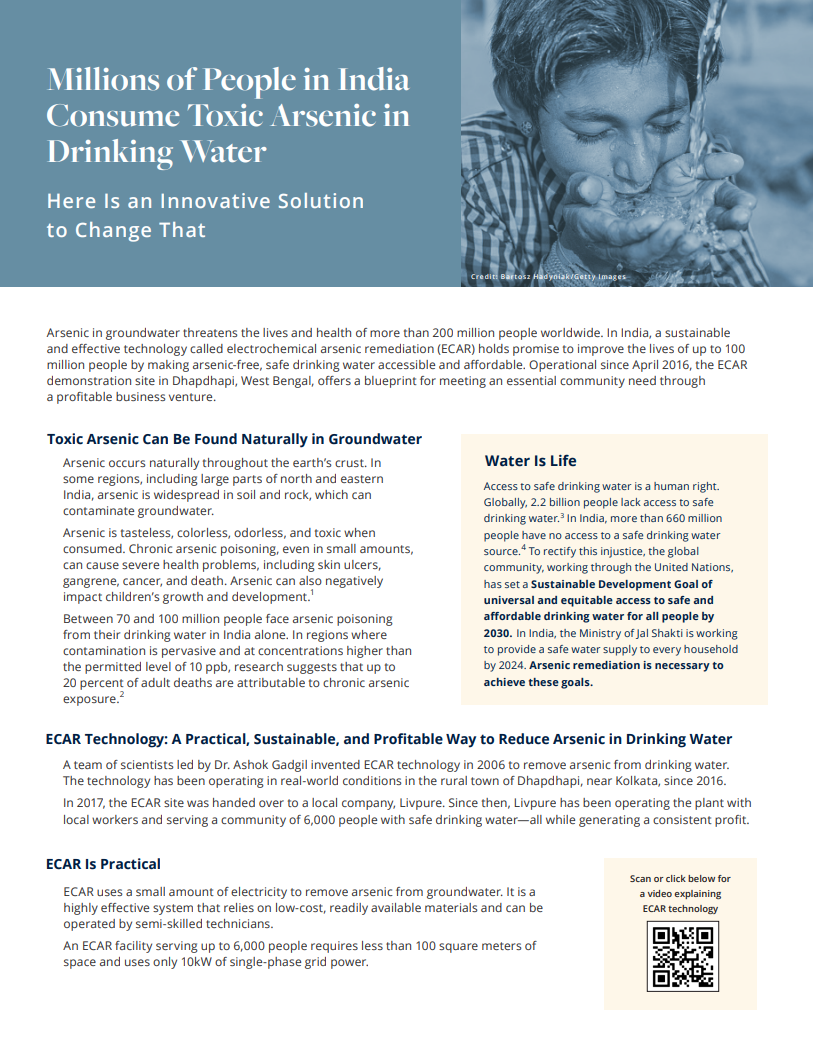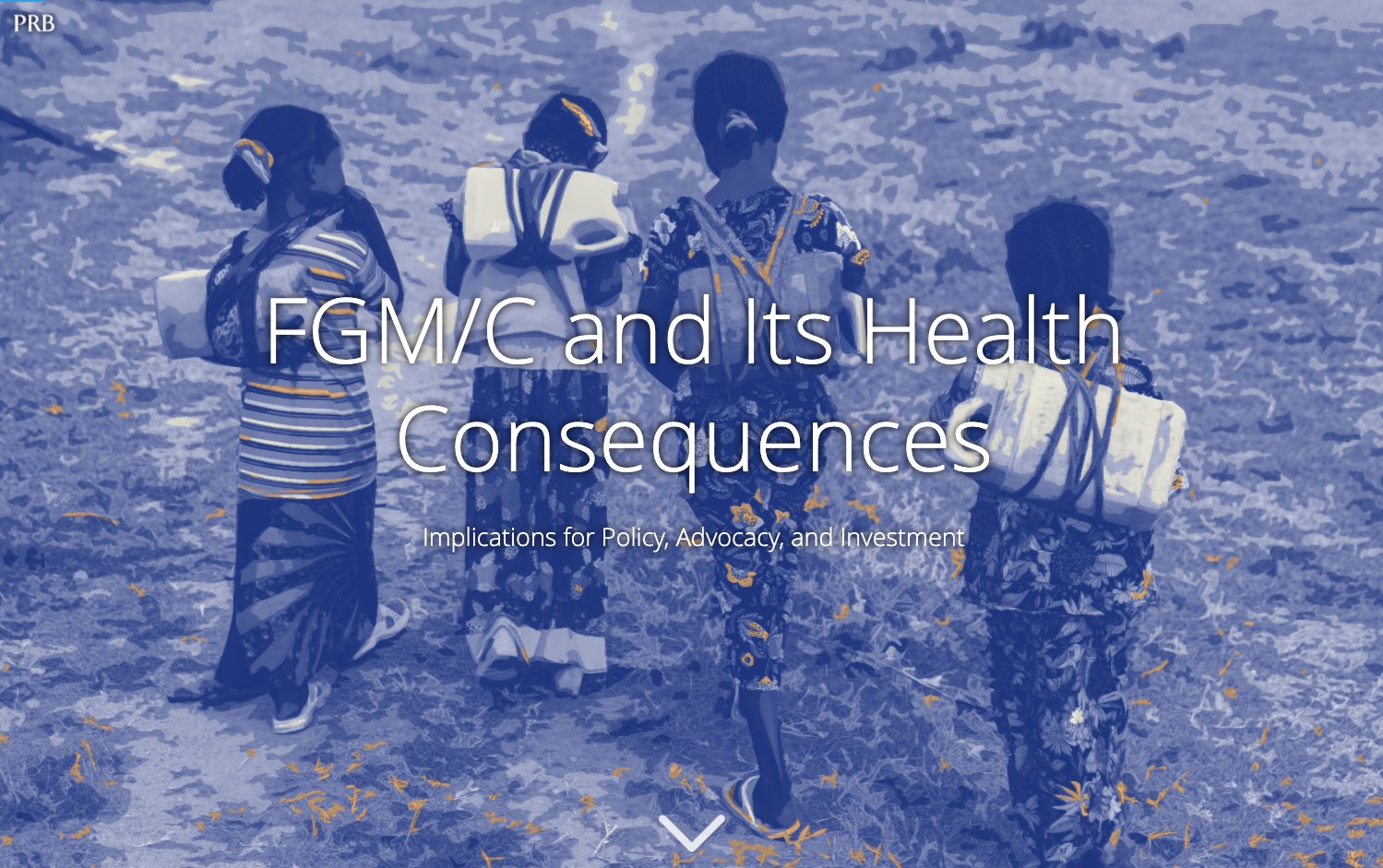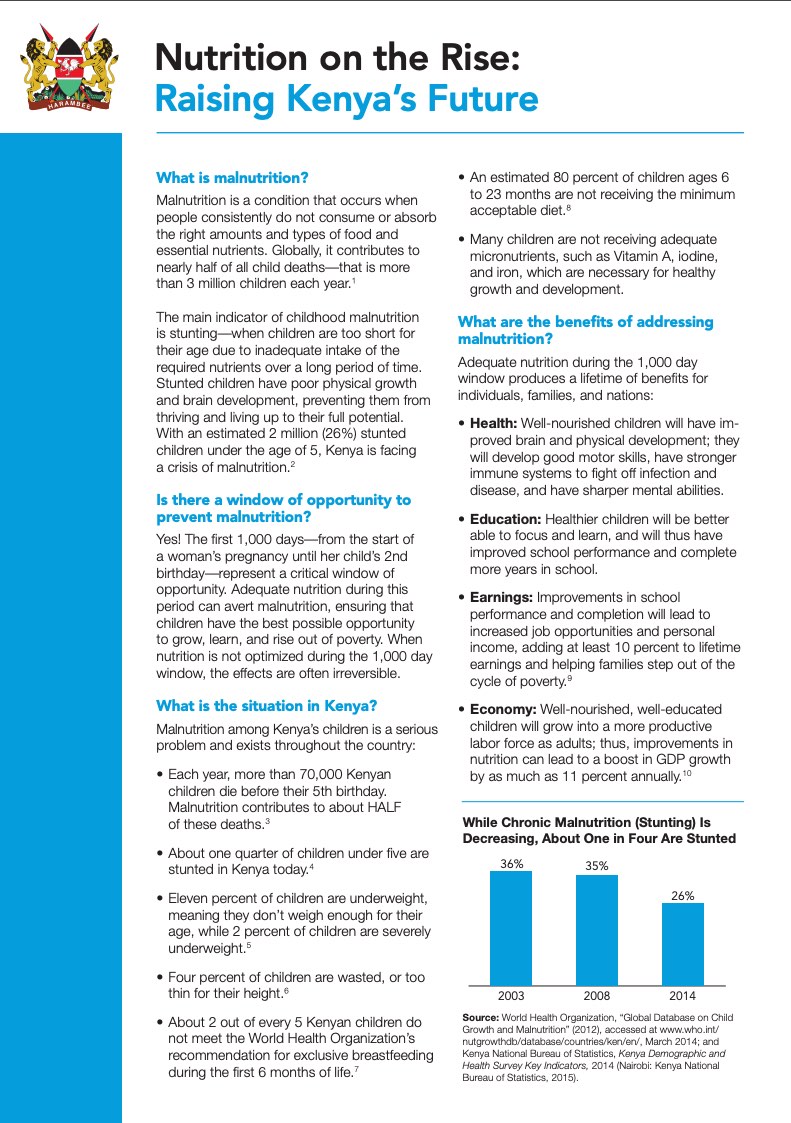Project: Research Technical Assistance Center (RTAC)
Toxic Arsenic in Drinking Water
This fact sheet provides an a practical, sustainable, and profitable way to reduce arsenic in drinking water.

Project: Research Technical Assistance Center (RTAC)
This fact sheet provides an a practical, sustainable, and profitable way to reduce arsenic in drinking water.

Project: Evidence to End Female Genital Mutilation/Cutting
This site offers a clear understanding of the health effects of FGM/C to provide direction for future investment by donors, highlight important knowledge gaps for further research, help medical professionals identify and manage complications, and strengthen advocates’ messages.

The presentation illustrates why proper nutrition for women and children is so important, especially in the first 1,000 day period—from the start of a woman’s pregnancy until her child’s second birthday.

Project: PACE: Policy, Advocacy, and Communication Enhanced for Population and Reproductive Health
(2018) Youth constitute a large share of the world’s population. According to the United Nations, 33 percent of the global population is between the ages of 10 to 29.1 Yet, many youth in the world’s most rural areas—whose needs differ from urban youth—are not receiving critical health services, education, or training.

Project: PACE: Policy, Advocacy, and Communication Enhanced for Population and Reproductive Health
This segment from the ENGAGE presentation “Harnessing the Demographic Dividend” explains the changes necessary for countries to achieve a demographic dividend, and serves as a platform for leaders to discuss investments in youth, family planning, education, and the economy.
(2010) In many countries, the elderly now make up an unprecedented share of the population. This increase in the number of older people has implications for national budgets, labor force growth, and family support systems.